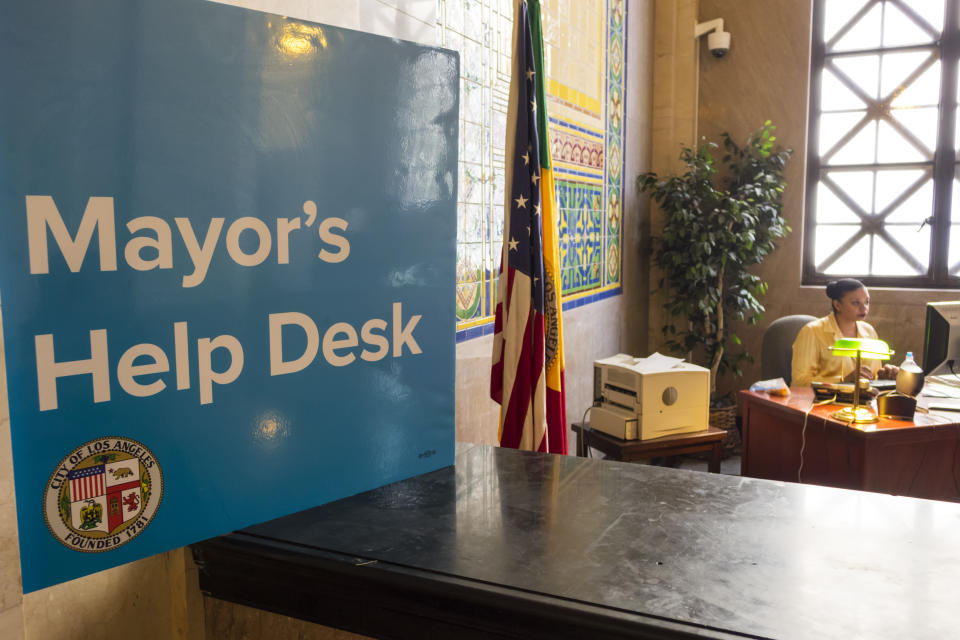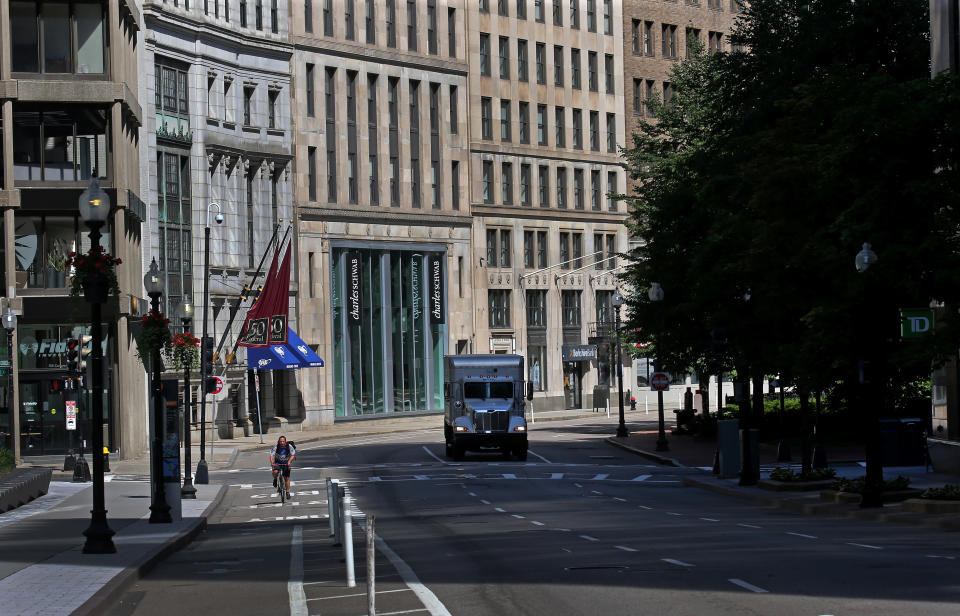US mayors are 'under more pressure now than ever before': poll
A new survey of U.S. mayors finds two conflicting trends that point to intense challenges for cities in the years ahead.
Most mayors – 69% – report the need to invest in infrastructure as a top and immediate priority to recover from the pandemic.
At the same time, 98% expect their city’s operating budget will decline over the next 12-18 months. Most of the respondents attributed all or most of the decline to the COVID-19 pandemic.
In all, 96% of mayors say they are “under more pressure now than ever before.”
A good example came on Wednesday when New York City Mayor Bill de Blasio announced that all employees in his office, including himself, would have to take a one-week furlough sometime between October and next March to save the city money. "[I]t is with pain that I say they and their families will lose a week's pay" the Mayor said.
Moves like New York’s come at the same time as cities are feeling pressure to invest in the economic recovery.
“Mayors know that few things can revitalize an economy and a city like investments in modern infrastructure,” said Louisville Mayor Greg Fischer, the president of the U.S. Conference of Mayors, in a statement. “That’s why it’s so important for lawmakers in Washington to appreciate the severity of the budget crisis that cities are facing as a direct result of the virus,” he said.
This survey was conducted online by The Harris Poll on behalf of the U.S. Conference of Mayors and Siemens U.S.A. The survey included 124 mayors across 35 states from cities with populations of 30,000 or higher.

During an appearance on Yahoo Finance, Barbara Humpton, the CEO of Siemens USA, noted that the mayors see infrastructure as “not just as a way to create jobs but actually to really enable economic growth” she said adding that partnerships with companies like Siemens may be a way for cities to take advantage of this as “both a near term and a long term opportunity."
Shortfalls across the board
Two-thirds of mayors say that right now is the time for their city to be investing in projects like helping employees return to work with confidence.
Nearly every respondent (94%) agreed that more help from the federal government was needed to provide emergency fiscal relief to fill these upcoming budget shortfalls. And 86% of mayors said that without immediate help, the ability of their city's economy to bounce back will be significantly delayed.
In a recent interview with Yahoo Finance, Miami Mayor Francis Suarez provided just one example: He described his city’s budget going from a $20 million surplus to a $25 million deficit when coronavirus hit.
He urged Washington to pass more aid to “prevent us from having to cut or not give raises to our firefighters, our police officers, all those frontline workers who, by the way, are the professionals who are at the most risk of contracting COVID.”
The pandemic has also revealed the vulnerability of other revenue streams like sales taxes among the survey respondents. “Reliance on sales tax has proved problematic as the revenue has declined when we need it the most,” one of the mayors who completed the survey said.
A recent analysis found that revenue sources for cities have been hit hard across the country with many communities likely to lose at least 10% of the funds they might have had without the pandemic. Cities that rely heavily on sales tax and tourism are the hardest hit. Other cites more reliant on property tax might fare relatively better.

Other top investment priorities in the survey included expanding delivery city services, finding new tax revenue streams, and crisis preparedness.
A bigger role for corporations and small business
The survey also pointed to an increased role corporations could play to help cities. Every mayor surveyed saw a role for corporations in helping to rebuild and revitalize their city’s economy. A common theme was the desire for more public-private partnerships and capital investments.
Siemens USA partnered with the United States Conference of Mayors on the survey with the ultimate goal "of helping to identify and then share solutions to the ongoing challenge."
Humpton, who runs the American wing of the international technology company, says that business partnerships are an opportunity as the mayors look toward ways to rebuild with decreasing help from their state government and from Washington, D.C.
She said there is a lower rate of public-private partnerships in the U.S. currently than elsewhere around the world and this is an opportunity to "get more private money engaged in building our infrastructure."
"This is a brilliant moment for reinvention" she added, saying cities in the future could be structured differently in order to operate cleaner and also “be prepared for that next virus."
Ben Werschkul is a producer for Yahoo Finance in Washington, DC.
Read more:
The US has lost jobs since Trump took office, but so have many other countries
Biden’s top economic priority isn’t what you think
White House on jobs: ‘The numbers are going to slow’ but we’re in a ‘durable recovery’
Read the latest financial and business news from Yahoo Finance
Follow Yahoo Finance on Twitter, Facebook, Instagram, Flipboard, LinkedIn, YouTube, and reddit.


